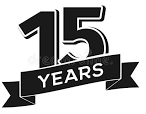স্বাধীনতা পরবর্তী বাংলা উপন্যাসে প্রান্তিক নারী চরিত্র: প্রতিবাদ ও প্রতিরোধের স্বর
Volume-XIII, Issue-III, April 2025 > Volume-XIII, Issue-IV, July 2025
Volume-XIII, Issue-IV, July 2025 |
Received: 18.07.2025 | Accepted: 23.07.2025 | ||||
Published Online: 31.07.2025 | Page No: 49-57 | ||||
DOI: 10.64031/pratidhwanitheecho.vol.13.issue.04W.007 | |||||
স্বাধীনতা পরবর্তী বাংলা উপন্যাসে প্রান্তিক নারী চরিত্র: প্রতিবাদ ও প্রতিরোধের স্বর
আজিমুল হক, সহকারী অধ্যাপক, বাংলা বিভাগ, দীনবন্ধু
মহাবিদ্যালয়, বনগাঁ, পশ্চিমবঙ্গ, ভারত |
Marginalized
Women in Post-Independence Bengali Novels: Voices of Protest and Resistance
Dr Ajimul Hoque,
Asst. Prof, Dept. of Bengali, Dinabandhu Mahavidyalaya, Bongaon, West Bengal,
India | ||
ABSTRACT | ||
Peasant movements are an important theme in Bengali novels after
Independence. From Mahasweta Devi, Debesh Roy, Jharjeshwar Chattopadhyay to
Soharab Hossain—each of them has portrayed different kinds of peasant movements
in their novels. From the Tebhaga movement to the Naxalite movement and the
recent Singur-Nandigram movement—all have emerged as subjects in their novels.
Mahasweta Devi wrote in protest against the land acquisition policy affecting
the Adivasis, Debesh Roy wrote highlighting the history of deprivation of the
farmers of North Bengal, Jharjeshwar Chattopadhyay wrote about the Tebhaga
struggle of Kakdwip, and Soharab Hossain wrote about the agricultural policies
of the Left Front government and the recent Singur-Nandigram movements. The
protesting characters in each of these novels are not only men, but women as
well. How women, as rebellious figures, have leapt into the fight against
landlords, zamindars, and exploiters to claim their rights and to free themselves
from the curse of deprivation—these issues will be discussed in this essay. | ||
Keyword:
|



